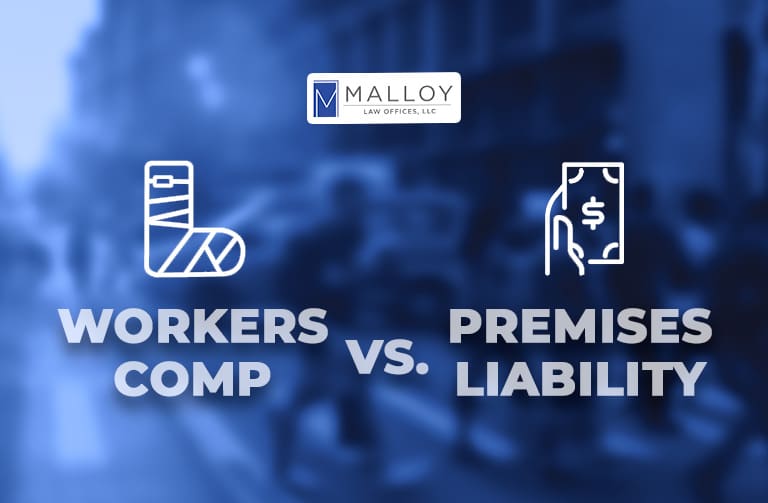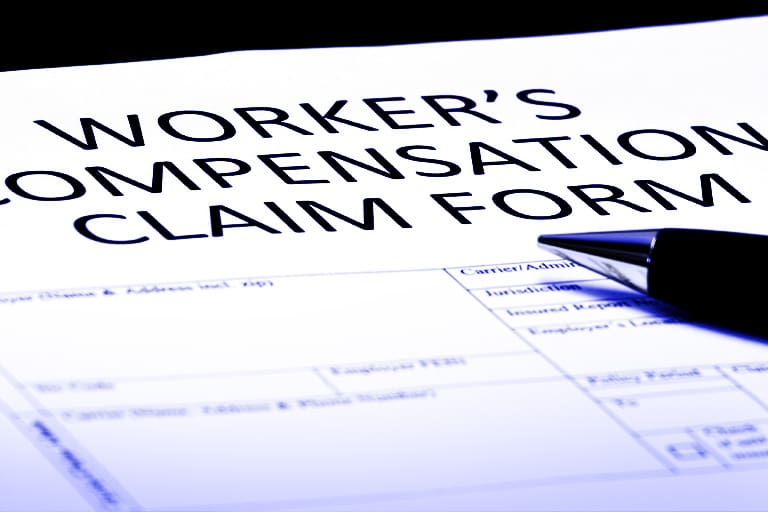Workers Comp or Premises Liability?
As we discussed in a recent edition of this blog, a significant majority of workplace injuries come about due to falls. The compensation and medical expenses associated with these injuries come to approximately $70 billion annually. This volume would indicate a phenomenon which stretches outside the boundaries of any particular industry or line of work. This means that any given American worker may one day face the aftermath of a fall and all that implies. A fall may mean a hospital stay. It may mean a long-term rehabilitation. But it will almost certainly mean a worker’s compensation claim, or will it? Just because your injury occurred in the workplace, that does not necessarily mean that a worker’s compensation claim will be the best path forward. Today’s Malloy Law Blog post will examine whether you should file workers comp or premises liability lawsuit
Workers Comp
When an employee is injured on the job, they typically seek compensation through the state’s workers’ compensation system. Worker’s comp can be thought of as a kind of insurance. In the event of a workplace injury, workers comp pays out for:
- Medical treatment related to the injury
- Partial wage replacement during recovery
- Compensation for permanent disabilities
- Vocational rehabilitation services
While this system does not pay out for emotional trauma, its coverage is otherwise fairly comprehensive and available to most working people in the US. However, workers comp does come with certain tradeoffs. By virtue of being a compromise between workers, business owners, and the government, it is a “no fault” system. This means injured workers have no duty to prove that their injury was their employer’s fault to receive compensation, but it also means employers do not have to admit fault. Receiving worker’s comp benefits means that the injured worker will not sue their employer in a court of law.
Premises Liability
Due to its relative convenience and the speed at which injured people can receive compensation, workers comp is the preferred route for most injured workers. However, there are specific circumstances under which an employee might pursue a premises liability lawsuit against their employer.
- Intentional Harm: If an employer intentionally causes harm to an employee, the employee may pursue a civil lawsuit.
- Lack of Workers’ Compensation Insurance: If an employer fails to carry the required workers’ compensation insurance, the employee can sue for damages resulting from a workplace injury.
In general, both situations contain extenuating circumstances, forcing the hand of the injured person. This is a good nutshell explanation of how workplace injuries are generally navigated. In general, workers compensation will lead to a quicker, simpler, and most importantly guaranteed recovery of compensation for workplace injuries. A premises liability lawsuit, while more valuable in theory, would lead to months or even years of work before a settlement even has a chance to be reached.
Why Not Choose Both?
The distinction between a worker’s compensation claim and a premises liability claim directed at one’s employer is necessary to draw because the two options are likely going to be mutually exclusive. However, there is one potential scenario where an injured worker can both pursue a workers compensation claim and file a personal injury lawsuit.
If a third party (not the employer) is responsible for the injury—for example, a property owner or equipment manufacturer—the employee can file a personal injury lawsuit against that party in addition to a workers’ compensation claim. Again, this is a somewhat extraordinary circumstance. The vast majority of workplace injuries will be best resolved by a workers comp claim, a minority of these incidents may have the basis for a premises liability lawsuit. A minority of a minority may be able to seek compensation through both avenues.
How Malloy Law Can Help
If you’ve suffered a workplace accident and are unsure of where to turn, Malloy Law is here to help. Our experienced personal injury attorneys are standing by to assess your case free of charge and craft a strategy to win maximum compensation on your behalf. Contact Malloy Law today and let’s win your case.




